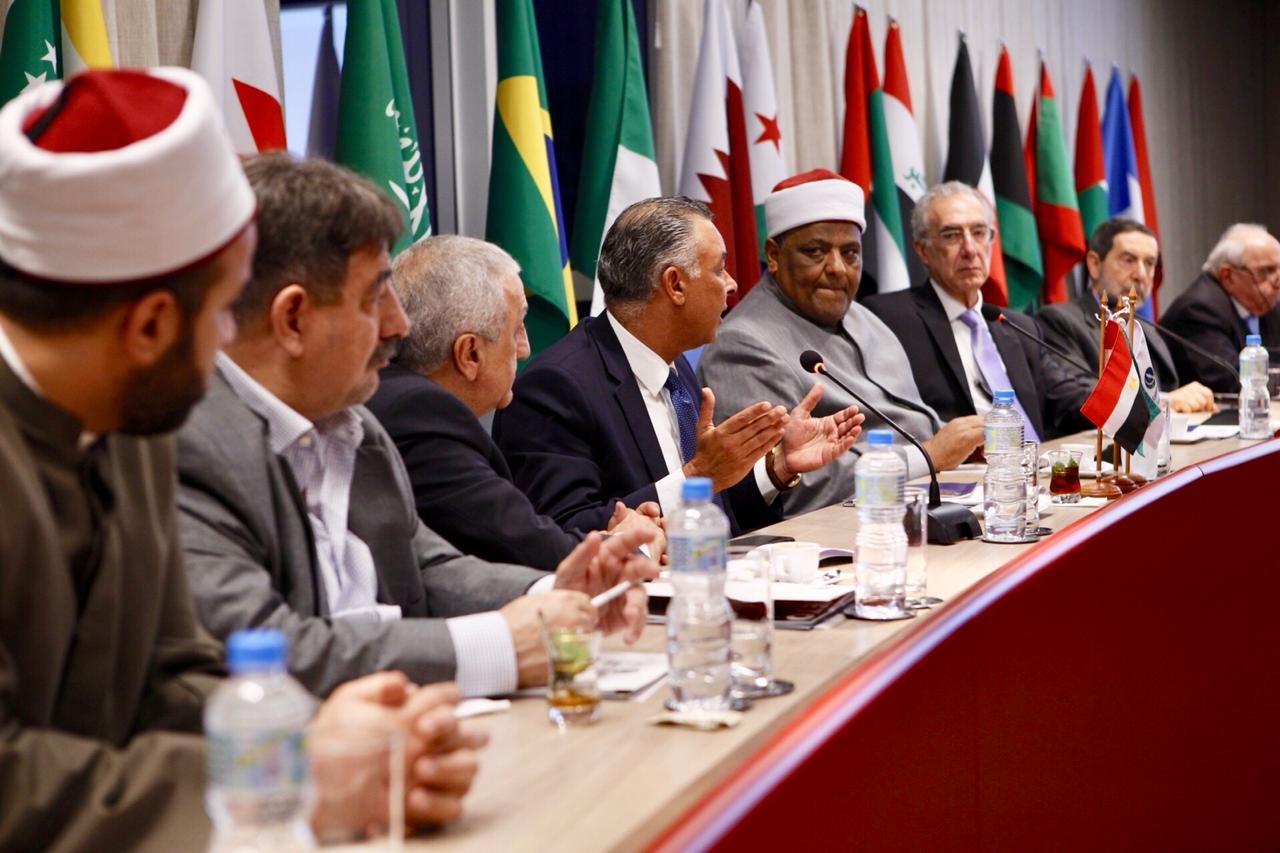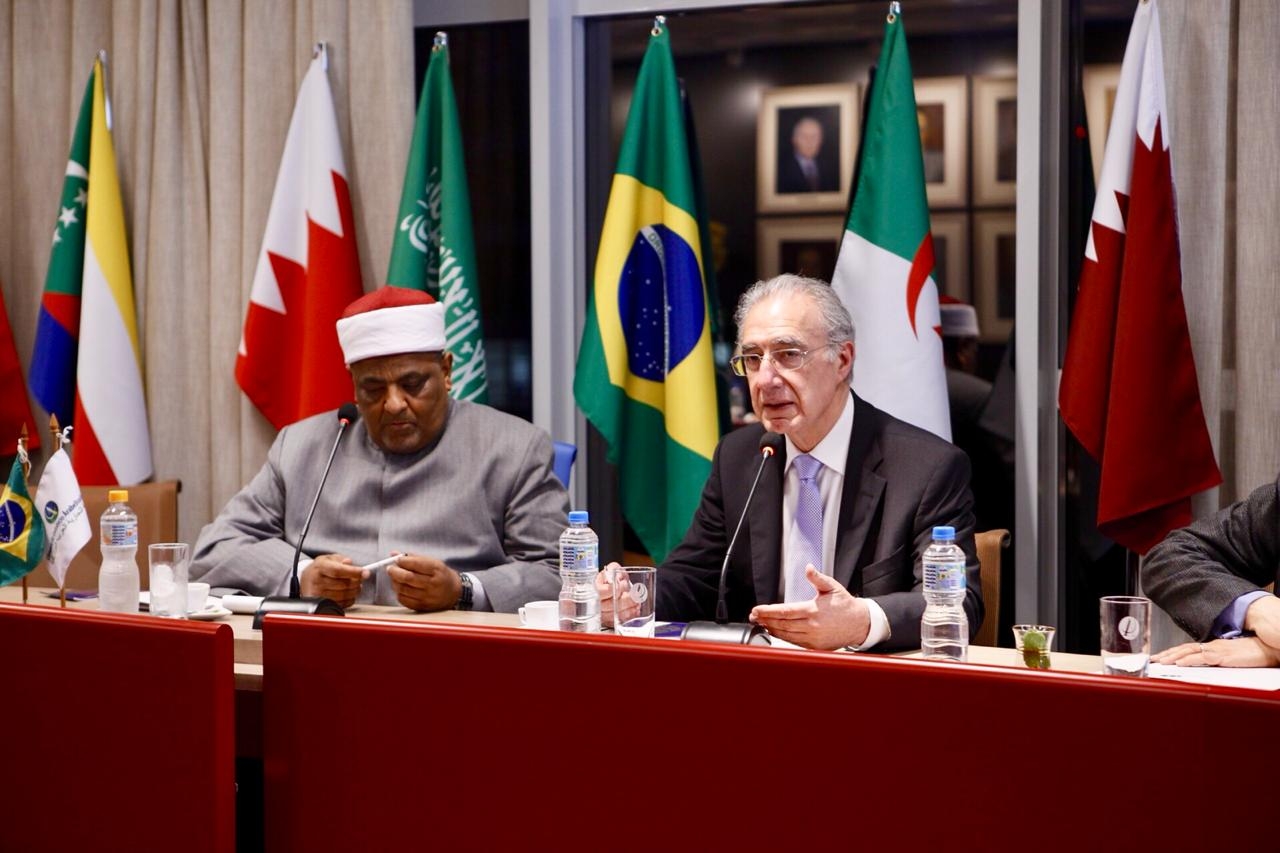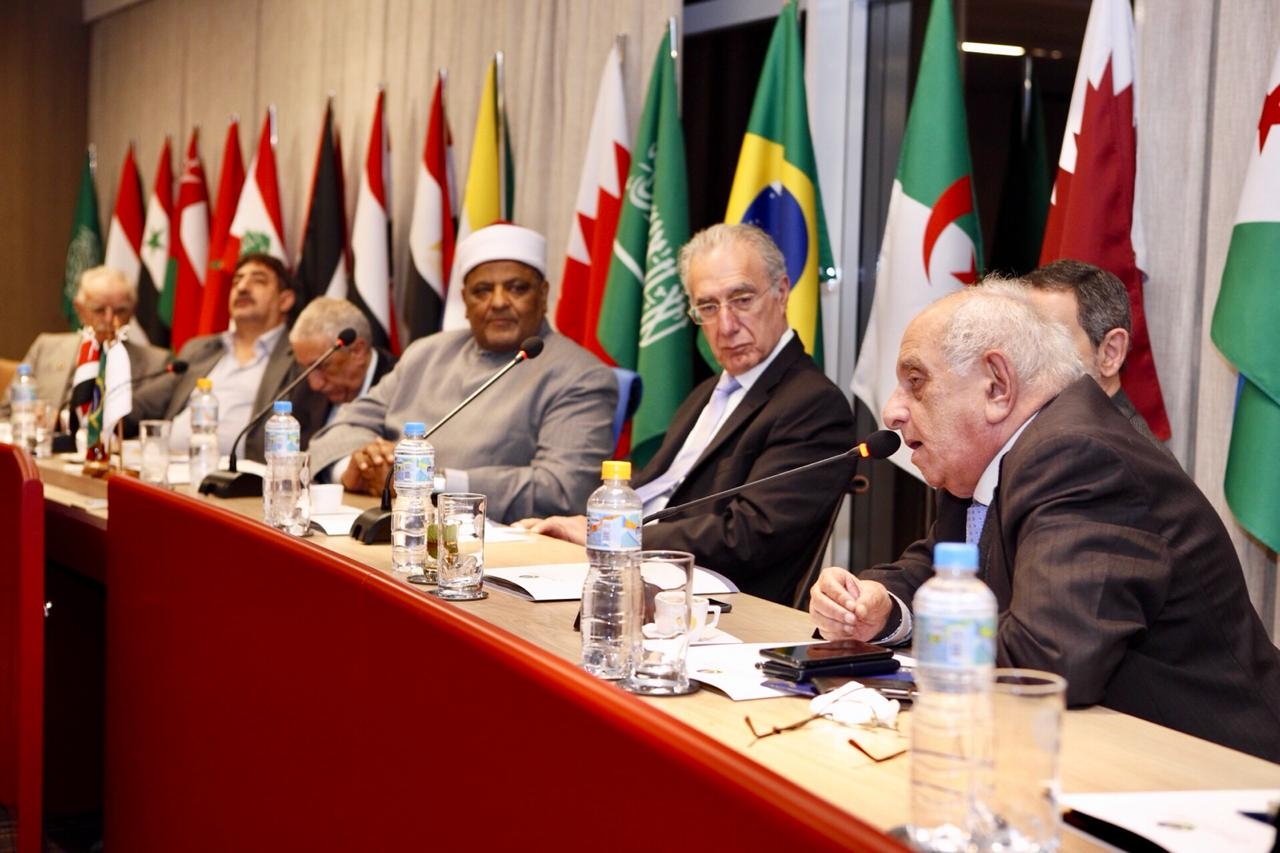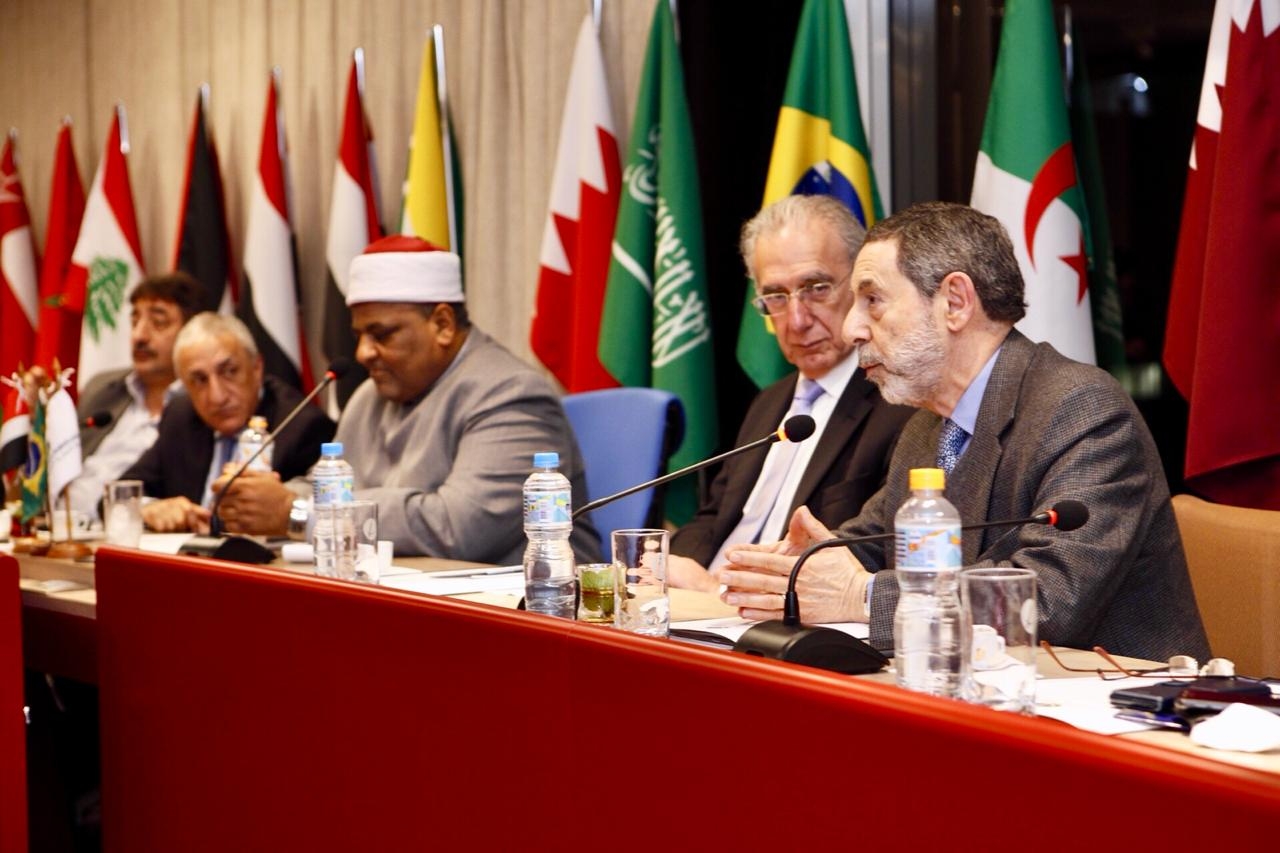São Paulo – The deputy sheikh from Al-Azhar, Egypt, Abbas Shuman, is in Brazil to have a close look at halal food production in the country. Al-Azhar is Egypt’s premier Islamic religious institution and one of the most traditional and respected in the world. Shuman is second in line in the organization’s hierarchy. Late on Monday afternoon (6), he visited the Arab Brazilian Chamber of Commerce, in São Paulo, where he was welcomed by president Rubens Hannun and other board members.

“I have been invited by Fambras (the Federation of Muslim Associations in Brazil) to visit Brazil in order to advance our ties with Islamic organizations in the country,” Shuman said. Fambras is one of the halal certifying bodies in Brazil, meaning it ensures goods have been made in accordance with Muslim tradition.
Besides visiting Fambras and the Arab Chamber, he will go to a meat packer on Tuesday (7) to see halal slaughter taking place. “We are aware that Brazil is one of the leading animal protein producers in the world, and our certification must have credibility,” Shuman said. According to him, the visits, and a positive assessment from Al-Azhar, will guarantee Brazil continues to trade in meats with Egypt. “This will give confidence to Arab and Muslim consumers,” he argued.

Shuman visited the Arab Chamber alongside the ambassador of Egypt to Brasília, Alaaeldin Roushdy; the head of Egypt’s commercial office in São Paulo, consul Mohamed Elkhati; and Fambras president Mohamed Zoghbi.
“I made a point of bringing his eminence to the Arab Chamber so he could have a close look at the cooperation in place between the Embassy and the Chamber,” the ambassador said. “Al-Azhar is responsible for the religious aspect of halal. That is why it’s important to show him both of the parties that handle the matter,” he said, in a reference to the religious and technical work done by Fambras, including poultry and cattle slaughter, and the work of the Arab Chamber, which issues certificates of origin, export papers and commercial promotion. “With the visit tomorrow [to the meat packing facilities], his eminence will look at the technical aspects, how slaughter is carried out, and this will give him an overview of the entire process,” Roushdy concluded.

To that end, Hannun said: “I can assure his eminence of the Arab Chamber’s impartial role of being the eyes of Arabs in Brazil and the eyes of Brazilians in the Arab countries.” The Chamber is the only Brazilian organization accredited by the Union of Arab Chambers, the business arm of the League of Arab States, to certify the export of goods to Arab countries. “I would also like to say we sustain very good relations with the ministries of Agriculture in both Egypt and Brazil,” said Hannun.

Beef is the top-selling product from Brazil to Egypt, with sales fetching USD 246 million in H1, up 19.6% year-on-year according to numbers from the Brazilian Ministry of Industry, Foreign Trade and Services. Poultry exports from Brazil to Egypt in the first seven months of 2018 reached USD 34 million, down 76.6% year-on-year.
Arab Chamber CEO Michel Alaby explained that in order for export papers to be certified, 26 different items are checked, including halal certification. “We will not accept halal certification unless religious authorities tell us that the certifier is legally permitted [in the destination country],” the executive said.

Arab Chamber International Relations vice president Osmar Chohfi pointed out that relations with Egypt are key to Brazil. “Egypt has always been an important partner of Brazil’s in the Arab world. It was the first Arab country Brazil established diplomatic ties with, in 1922,” said Chohfi, an ambassador by trade and a former secretary-general to the Ministry of Foreign Affairs, a position equivalent to deputy minister of Foreign Affairs. “It is especially important for the Arab Chamber to welcome a delegation from one of the oldest universities in the world,” he said.
Besides being the leading Islamic religious authority in Egypt, Al-Azhar is also an educational institution which provides everything from basic education to postgraduate programs. “And we do not offer only religious courses. We have 86 faculties, some of which teach religious subjects, but others teach sciences, medicine, engineering, pharmacy and all of the modern subjects,” Shuman explained. The Al-Azhar Mosque, a major landmark of Cairo’s Old Town, is also run by the organization.
The visitors were also welcomed by Chamber board members Willian Atui and Mohamed Orra Mourad.
Translated by Gabriel Pomerancblum




